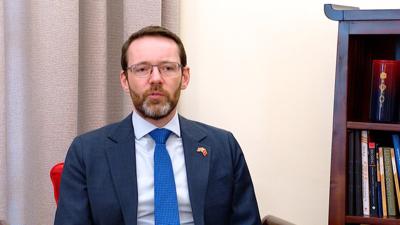PM calls for efforts to reach 2024 growth target of 6.5%
The call was made during a Cabinet meeting on June 8.

Prime Minister Pham Minh Chinh has asked relevant ministries, agencies, localities and sectors to strive to reach the 2024 growth rate at the upper limit of the 6-6.5% target, and inflation at the lower of the 4-4,5% target, given the context that there are more challenges than opportunities.
Chairing a meeting between permanent Cabinet members and representatives of ministries and agencies on June 8, PM Chinh also required for efforts to ensure macroeconomic stability and major economic balances, and control budget overspending as well as public, government and foreign debts.
Regarding specific tasks, the Government leader said a Steering Committee to direct the settlement of legal obstacles will be established soon under the chair of the Prime Minister. He asked leaders of relevant ministries and agencies to continue reviewing and completing mechanisms and regulations, particularly those relating to public investment, public-private cooperation, State budget and tax, based on which a legal document should be issued to amend many laws.
Focus should also be made on intensifying administrative reform, improving investment and business environment.
In order to boost growth, PM Chinh asked for proactive, flexible and effective monetary policies, and measures to remove obstacles and difficulties facing production and trade, facilitate enterprises and people’s access to credits, and cut the interest rate by 1-2%.
PM Chinh also requested relevant ministries and agencies to continue to exempt or cut taxes, fees and charges to tackle production and business obstacles.
It is also necessary to review and take measures to accelerate the disbursement of the credit package worth VND120 trillion ($4.71 billion) for social housing development, he said.
The Government leader asked for renewing the traditional growth drivers, including investment, export and consumption; while promoting new ones like regional connectivity, digital economy, green economy, circular economy, and innovation, along with emerging industries such as semiconductors and AI.







